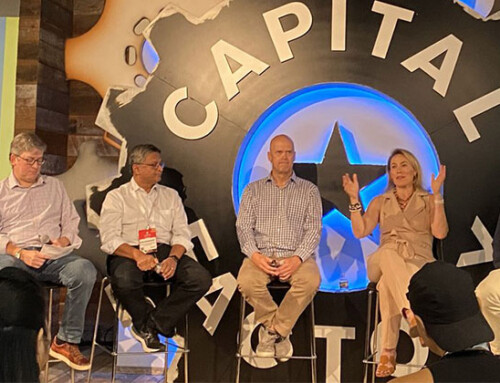This article originally appeared in Crain’s Austin
The Mistake:
Allowing a certain dynamic to exist while working in corporate America.
I was always in very male-dominated environments being in mechanical engineering, and having worked toward a bachelor’s, master’s and PhD. Then I spent 20 years working in the semiconductor industry, especially in technical and operational roles. Then in venture capital, there is also a very low percentage of women. My husband and I started a brewery as well, which is also a male-dominated field. For many years, I was blind to the fact that I was the only woman because I was just used to it, starting from college since I was 18 when I had the bathroom to myself always.
Looking back, I realize in my roles that even as I got more senior and actually very senior, I was often in the background doing a lot of the work and not getting the credit. I worked for three Fortune 500 CEOs and I remember not speaking up very much, and sitting at the C-suite table not taking a lot of comments personally. But now I hear stories of how a woman will bring up a point at a meeting and then some guy brings up the same point a few minutes later and people say, “Great point, Jim,” and give him the credit. Well, that stuff happened to me all the time. But I did not take it personally. I was comfortable and OK with not being in the forefront. But now when I look back I think, I can’t believe this was happening the whole time and I didn’t realize it.
But I think if I had noticed, I may not have gotten as far along in my career. For example, there were two instances working for CEOs that didn’t know I had children. I just never spoke about my personal life to them. Then something would happen like we’d be at a dinner with families, and they would find out I had kids. With one of them, there was this absolutely jaw-dropping look of shock on his face. Looking back, it probably was a good thing I didn’t tell them. I’m not sure they would’ve asked me to do all the things they asked me to do because I didn’t make it known that I was balancing all these things. The sad truth is if I had spoken up more I wouldn’t have gotten as far ahead as I did.
“I should have worked more gently or subtly on changing things as an insider versus just accepting the situation.”
The Lesson:
At some point, though, I kind of did what I had to do, my eyes opened about two years ago and I realized I wasn’t being much of a role model for other women and that’s the basis of my whole career now: the underserved opportunity of investing in women-led businesses. I don’t want other women to go through what I did. That’s not the model I want for a successful woman in corporate America to look like.
Unfortunately, you have to be well-liked so you feel like you almost have got to play the game in order to change the dynamic because I don’t believe quitting helps anything. It just makes it worse. Looking back, I think I should have worked more gently or subtly on changing things as an insider versus just accepting the situation. But if I’d been more attuned to what was happening, I might not have put up with it and then I wouldn’t be where I am today.
In my position, one of my goals is to empower female executives more, so that they can bypass this whole corporate environment because there’s so much of this unconscious bias that it will take a long time to resolve. This occurs despite the fact that it’s been proven that investing in more gender diverse teams is a way to really drive more innovation in the entire economy and better performance for these businesses. It’s much easier to do that with early-stage startup than corporate America.
We want to have more women entrepreneurs be seen as success stories, taking their own ideas and running with them so that they will inspire and bypass the whole corporate institution. More women will see it, so they can be it.





